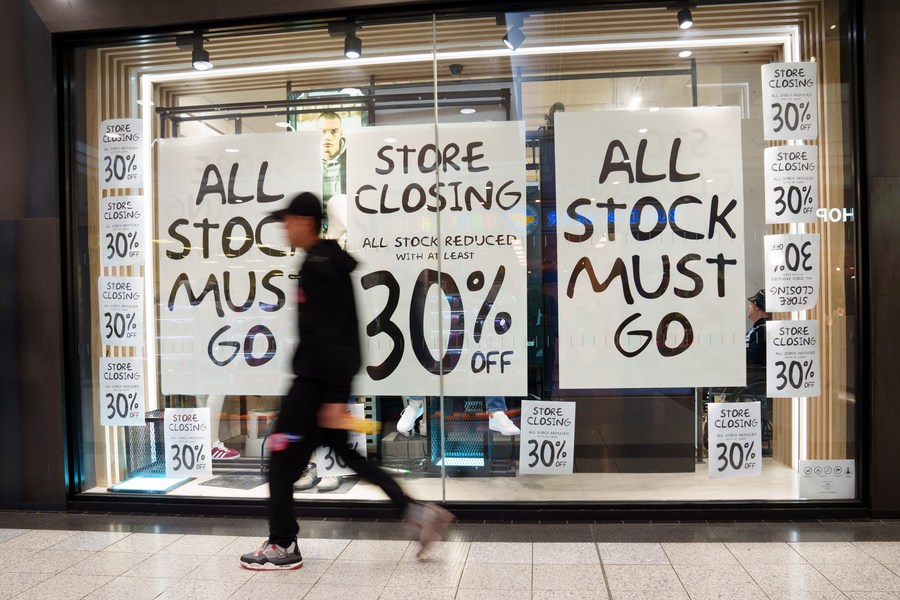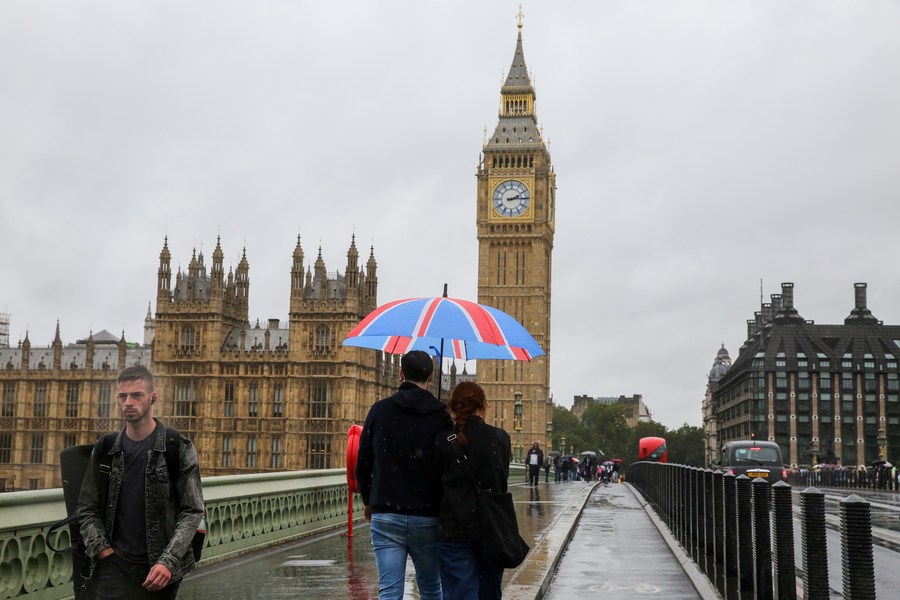The gross domestic product (GDP) of the United Kingdom (UK) grew by 0.2 percent in the second quarter (Q2) of this year, official figures showed on Friday.
The Office for National Statistics (ONS) reported increases in all main sectors between April and June: services output rose by 0.1 percent, production by 0.7 percent and construction by 0.3 percent.
“Across the quarter as a whole, GDP grew a little with widespread growth across manufacturing — aided by falling raw material prices — computer programming and hospitality,” Darren Morgan, director of economic statistics at the ONS, said.
Year-on-year, the Q2 GDP is estimated to have increased by 0.4 percent, but still 0.2 percent below its pre-COVID-19 level in Q4 2019.

A bus runs past a row of houses in Notting Hill in London, Britain, July 30, 2023. (Xinhua/Li Ying)
The Q2 growth was boosted by a strong June. The country’s GDP is estimated to have grown by 0.5 percent in June, after a fall of 0.1 percent in May and growth of 0.2 percent in April.
“The economy bounced back from the effects of May’s extra bank holiday to record strong growth in June. Manufacturing saw a particularly strong month with both cars and the often-erratic pharmaceutical industry seeing particularly buoyant growth,” Morgan said.
“Services also had a strong month with publishing, car sales and legal services all doing well, though this was partially offset by falls in health, which was hit by further strike action. Construction also grew strongly, as did pubs and restaurants, both aided by the hot weather,” he added.
Friday’s figures were better than expected in the Bank of England’s (BoE) forecast last week, which specified a 0.1 percent GDP growth in Q2. But economists remained cautious.

A man walks past a shop in Manchester, Britain, May 11, 2023. (Photo by Jon Super/Xinhua)
Andrew Sentance, senior UK economist and former member of the BoE’s Monetary Policy Committee, said that the latest GDP figures show that the UK economy is “pedaling hard to achieve minimal economic growth.”
“This is significantly weaker than year-on-year growth in US and also below the Euro Area average. Among major EU economies, only Germany has performed worse,” he twitted.
James Smith, research director at the London-based Resolution Foundation think tank, said that the UK economy has only expanded by 0.7 percent since the start of 2022, which was “the weakest growth in 65 years outside of a full-blown recession.”
“Such weak growth will feel like a recession to many as families struggle with the ever-rising cost of essentials and higher mortgage repayments,” he said.
The UK has been in the grip of high inflation for more than a year. Its Consumer Price Index rose by 7.9 percent in the 12 months to June, far above the central bank’s 2 percent target. The BoE has raised the interest rate to 5.25 percent, its 14th consecutive rate hike since December 2021.

A couple shelters from the rain on Westminster Bridge in London, Britain, on Aug. 2, 2023. (Xinhua)
David Bharier, head of research at the British Chambers of Commerce commented that “Businesses are continuing to face a worrying mix of high inflation, rising interest rates, a tight labour market, and global economic uncertainty.” ■













